A "Hermit" in Tove Jansson's Moomin books
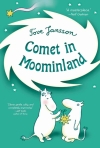
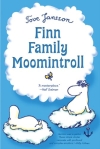
Hermits and solitaries in children's literature are often depicted as either wizard-priest didactic elders (Ewing), spirited survivalists (Bewick, Defoe) or simple and endearing eccentrics (Hall). Grumpy edges must be softened and menacing appearance mollified. Children don't want hermit monsters; to this degree children's writers are fair-minded and sympathetic. Tove Jansson was especially so.
In her Moomin books, Finnish-born Tove Jansson (1914-2001) created warm, wholesome, adventurous imaginative animals, chiefly trolls. The first two books -- Comet in Moominland (1946) and Finn Family Moomintroll(1948) -- present the hermit and solitary character called Muskrat.
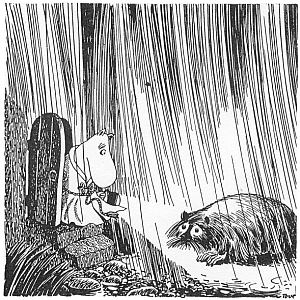 The gloomy Muskrat
(Bisamråttan) is called a "would-be philosopher, likes to be left in
peace." He first appears in Comet in Moominland.
One night, Moominpappa hears a "plaintive noise" during a downpour. He
finally goes to the front door with his flashlight (torch) and
illuminates "something wet and miserable, with shiny black eyes." It is
the Muskrat, who introduces himself as "a philosopher, you know" and
complains that Moominpappa's bridge-building activities had ruined his
home on the river bank. Moominpappa apologizes and lets Muskrat in.
Muskrat declines a bed. Muskrat explains that as a
philosopher, "I sit and think about how unnecessary everything
is."
The gloomy Muskrat
(Bisamråttan) is called a "would-be philosopher, likes to be left in
peace." He first appears in Comet in Moominland.
One night, Moominpappa hears a "plaintive noise" during a downpour. He
finally goes to the front door with his flashlight (torch) and
illuminates "something wet and miserable, with shiny black eyes." It is
the Muskrat, who introduces himself as "a philosopher, you know" and
complains that Moominpappa's bridge-building activities had ruined his
home on the river bank. Moominpappa apologizes and lets Muskrat in.
Muskrat declines a bed. Muskrat explains that as a
philosopher, "I sit and think about how unnecessary everything
is."
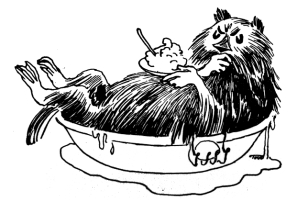 Later Moominmamma
hushes little Moomintroll (their child) when she cries out that
"There are hardly any unnecessary things," saying to her that "The
Muskrat is a wise man who knows about everything, and why it is
unnecessary." Muskrat predicts the arrival of a comet, and joins the
family in a cave to which they have retreated for the comet's passing.
After the comet's passing, they celebrate with a cake, first discovering that
Muskrat has absentmindedly sat on it. He is irately obliged to sit in a tub
of water to get clean.
Later Moominmamma
hushes little Moomintroll (their child) when she cries out that
"There are hardly any unnecessary things," saying to her that "The
Muskrat is a wise man who knows about everything, and why it is
unnecessary." Muskrat predicts the arrival of a comet, and joins the
family in a cave to which they have retreated for the comet's passing.
After the comet's passing, they celebrate with a cake, first discovering that
Muskrat has absentmindedly sat on it. He is irately obliged to sit in a tub
of water to get clean.
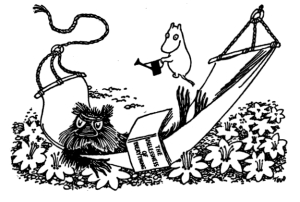 In Finn Family
Moomintroll, Muskrat is lying in a hammock with his book
(titled "The Uselessness of Everything") when the cord breaks
and embarrassingly he falls to the ground. Momminpappa is the
only witness, but Muskrat is incensed: "I do not like to be put into a
ridiculous
situation. It isn't dignified for a philosopher!" He retreats to the
cave, asking that his food be brought there, declaring, "I intend
to retire to a deserted spot and live a life of loneliness and peace,
giving up everything. I have made up my mind once and for all." He sits
in the cave, thinking.
In Finn Family
Moomintroll, Muskrat is lying in a hammock with his book
(titled "The Uselessness of Everything") when the cord breaks
and embarrassingly he falls to the ground. Momminpappa is the
only witness, but Muskrat is incensed: "I do not like to be put into a
ridiculous
situation. It isn't dignified for a philosopher!" He retreats to the
cave, asking that his food be brought there, declaring, "I intend
to retire to a deserted spot and live a life of loneliness and peace,
giving up everything. I have made up my mind once and for all." He sits
in the cave, thinking.
All was quiet and peaceful and through the crack in the roof the sun shone softly into his hiding place. ...
"Here I shall stay forever and ever," he thought. "How unncecessary it is to run about and chatter, to build a house and cook food and collect possessions!" He looked contentedly around his new home.
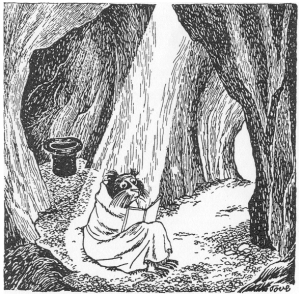 In the cave,
Muskrat finds a top hat. The hat belongs to one of the book's
characters, Hobgoblin, who plays tricks on all the characters by hiding
their belongings. It is a magic hat but Muskrat takes it for a
wastepaper basket. After thinking a while longer, he decides to nap. He
rolls himself in his blanket and puts his false teeth into the hat so
as not to get sand on them. Soon afterwards, Muskrat is heard running
and screaming back to the house. The reader assumes that something has
happened to his teeth (and probably has) but something has
happened to his book. In the final pages of the story, Hobgoblin
restores the book (as he restores all the characters' hidden
belongings). But Muskrat shouts after the flying Hobglobin when
the book reaches his hands. "'On the Usefulness
of Everything,'" read the Muskrat. "But this is the wrong book. The one
I had was about the Uselessness
of Everything." Hobgoblin only smiles and flies away.
In the cave,
Muskrat finds a top hat. The hat belongs to one of the book's
characters, Hobgoblin, who plays tricks on all the characters by hiding
their belongings. It is a magic hat but Muskrat takes it for a
wastepaper basket. After thinking a while longer, he decides to nap. He
rolls himself in his blanket and puts his false teeth into the hat so
as not to get sand on them. Soon afterwards, Muskrat is heard running
and screaming back to the house. The reader assumes that something has
happened to his teeth (and probably has) but something has
happened to his book. In the final pages of the story, Hobgoblin
restores the book (as he restores all the characters' hidden
belongings). But Muskrat shouts after the flying Hobglobin when
the book reaches his hands. "'On the Usefulness
of Everything,'" read the Muskrat. "But this is the wrong book. The one
I had was about the Uselessness
of Everything." Hobgoblin only smiles and flies away.
Unfortunately, Muskrat only appeared in these two books. But
Jansson has achieved what better writers for children do. She created
an entertaining children's narrative with an extra gift
for literate adults. Clearly Muskrat is a satirical version of
the philosopher Arthur Schopenhauer, the pessimist solitary
philosopher whom the Muskrat even looks like, including the wild hair, bristly sideburns, and false teeth.
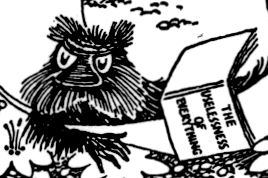
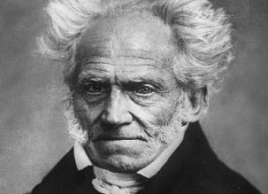
Philosophical and physiognomic analogies of Muskrat to Nietzsche,
Spengler, or
Sartre are not so likely. The "uselessness of everything" refers to
Schopenhauer's pessimism, and his notion of the uselessness of
individual will to counter the universe.
¶
